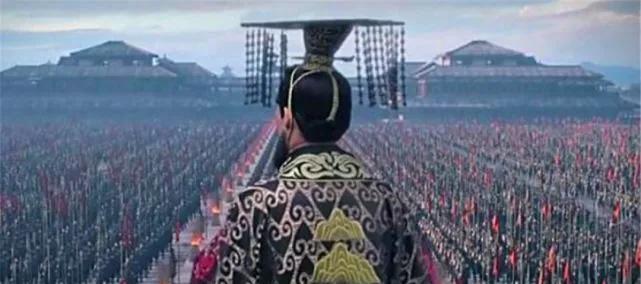I. Classic Story: It is said that Han Feizi's online commentary was circulated to the Qin Kingdom, and the King of Qin greatly appreciated Han Feizi's talent after reading it, saying: "If the widow can see Han Gongzi and talk with him about tea, he will die and have no regrets." Mao Zedong once exchanged books with Mao Yuanxin and said: "I read the "Han Feizi" you said several times when I was young, and "Lonely Anger" and "Five Beetles" can be memorized. This Han Fei and Li Si were both students of Xun Quan and were also famous Dafa scholars in Chinese history."

Second, outstanding achievements: Confucianism emphasizes that "etiquette is not inferior to the common man, and punishment cannot be a doctor", while the legalists represented by Han Fei believe that everyone is equal before the law. Even the powerful are not affectionate. "The wise man can resign, the brave man dares to argue, the torturer does not avoid the minister, and the reward does not leave the man behind." Han Fei integrated dialectics, materialism and law into one, and became the ideological basis of the ruling class in feudal society.
Han Fei developed the martingale and proposed that "time moves and it is not easy to cure chaos". Han Fei opposed the idea of the Mandate of Heaven and advocated that the Heavenly Dao was natural, and that objective laws should be respected and the dialectical principles should be highlighted. The first person in the history of Chinese philosophy to put forward the "theory of contradictions". Advocating the theory of evolution, arguing that history moves forward and does not have to follow ancient traditions. The greatest practitioner of Han Feizi's theory was Qin Shi Huang, who took the law as a teaching, strengthened the legal system, consolidated the centralization of power, and completed the unification of the hegemony of the six kingdoms.
The works of the police and the world, "Lonely Anger", "Five Beetles", "Speaking Difficulty", "Saying Forest", and "Inner Reserve", five books, more than 100,000 words, lament the difficulties of the world, the difficulties of life, and insight into people's hearts. "Han Feizi" has such popular fables as "waiting for rabbits", "avoiding diseases and avoiding medical treatment", and "indiscriminately charging numbers". His writings soared to the peak of pre-Qin jurists' theories.
3. The framed guest died in the Qin state: The Korean soldiers were defeated and ceded the land to the Qin state, and the king's seal was sacrificed as a vassal, and Han Fei was sent as an emissary to meet the King of Qin. Li Si was jealous of Han Fei and said to the King of Qin, "Han Fei is a prince of Korea. We want to annex the princely countries, and Han Fei will eventually turn to Korea and not to the Qin state, which is the common sentiment of people.
The king does not appoint Han Fei now, and then lets him go back to Korea, which is a self-inflicted problem. It would be better to use the criminal law to kill him." The King of Qin said yes, and then handed Han Fei over to the Ministry of Punishment for punishment. Li Si instructed people to send poison to Han Fei to urge him to commit suicide. Han Fei wanted to state his grievances to the King of Qin, but he was unable to see him. Later, the King of Qin regretted it and sent someone to release Han Fei, who was already dead.
4. Han Fei ID Card: Nicknamed Han Zi, Han Fei Zi, (c. 280 BC - 233 BC), a famous thinker, philosopher and writer at the end of the Warring States period. A native of Xinzheng (Henan), South Korea, a son of the Korean royal family, a student of Xunzi, a classmate of Li Si, Han Fei is a scholar of law and a scholar of Taoist Confucianism, and a representative of the school of law.
Fifth, posterity thoughts: Lonely grave stall, Han Fei's body was transported back to South Korea and buried in the lonely grave stall in his homeland. The Lonely Anger Terrace that Han Fei often visited after writing books still exists, and on the bank of Lintang Creek, it was originally a highland, pine cypress ginkgo. Later, the lonely angry platform gradually became low, and the villagers called the lonely grave stall.
Experts have examined it as a "lonely and indignant" platform, which is in line with the historical fact that Han Fei advised Han Wang not to use it and write a book behind closed doors. Shi Zhi Hanfei's homeland is in Hantang Village on the north bank of Tang Creek in Xiping County. Hantang Village has built the Han Family Ancestral Hall, and Hantang Village has left its name to this day.
References "History", "Zizhi Tongjian"